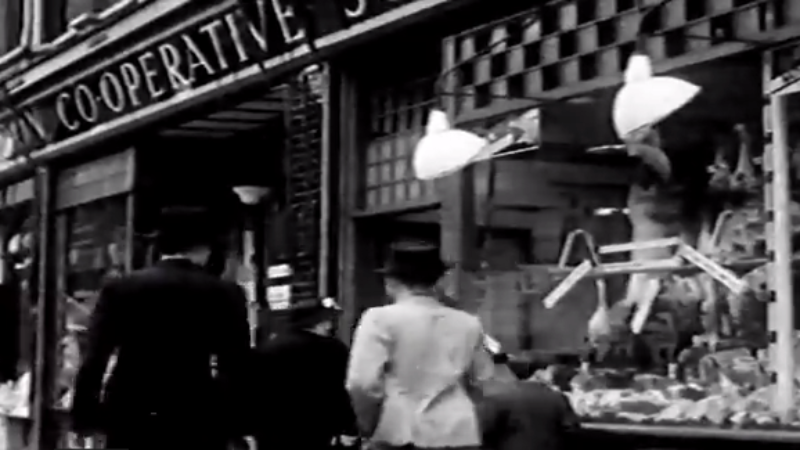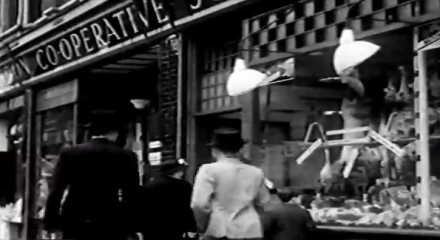

As the political uncertainties and consequences of Brexit and Donald Trump’s victory swirl around, the Co-operative Party will be focusing on the local as we hold our first ever Co-operative councillors’ conference in Manchester today.
The theme of the conference, “By us, for us”, reflects the Co-op Party belief in locating decision-making and governance as close as possible to those affected by decisions. We believe that our politics is done with people, not just to them; addressing the concern that too many people feel that they lack that influence over the environments in which they lead their lives.
In Labour’s working class heartlands, economic traditions have been lost, populations have declined, and a shift to low-skilled service jobs has stalled social mobility. This has struck at the heart of disaffection and alienation and given rise to the narrative of “taking back control” – deployed by Nigel Farage and Trump to devastating effect in recent months.
In responding, the left has proud traditions upon which to draw. The grand town halls of many of our towns and cities outside London reflect the golden area of municipal societies, who in the late 1800s, used the levers of local government to own, run and supply to their citizens the necessities of life at that time – gas, water, sanitation and education.
Today’s conference also includes the launch of the Co-operative Party’s latest report, By Us, For us: a co-operative vision for enhanced city and county regions. Bringing together the mutual and devolution agendas for the first time, our report argues that the success of devolution must be judged by the extent to which it drives power downwards to communities. Building on the legacy of those Victorian pioneers, our report demonstrates how mutual approaches can be applied to areas including economic regeneration, transport, energy and social care to deliver such a vision.
Co-operative leadership and the local economy
The conference will hear from leading councillors who are turning co‑operative ideas into action in their councils, such as in Preston, where they have rewritten the rules to establish a model of community wealth. The report also calls for the establishment of co-operative commissions which, led by councillors, can develop co-operation between stakeholders on issues such as adult social care, housing, transport and energy, as well as encouraging the growth of employee and customer-owned co-operative businesses that are rooted in the local area.
Regional banking and financial inclusion
But as councils become every reliant on local business rates, their leadership in revitalising local economies becomes ever more urgent. The recent closure of the steel plant in Redcar saw a direct loss of £10m worth of business rates to the local council, alongside the wider impact of 3,000 job losses. Local government must be more proactive in fostering local economies that are diverse, sustainable and resilient in the face of future economic shocks.
Our report explores what can be learned from the German model of regional banks, which serve a dual purpose of profitability and public mission. Such an approach unlocks investment in local small businesses and tackle financial exclusion. Devolution provides some clear opportunities to develop similar models in the UK.
Transport
Improving regional and local transport links are rightly seen as a priority for the new devolved authorities. The years since deregulation of bus services have seen routes cut, quality decline and services run with little accountability to local people, or recognition of the vital role of routes to local economies. Building on the Co-op Party’s People’s bus campaign, our report argues for greater passenger involvement in the procurement and delivery of local bus services, including expanding the role of not-for-profit and community-run bus operators.
Energy
Businesses and households are being let down by an energy market monopolised by just six companies. The shift to renewables is stalling and prices are rising. Our report makes the case for joint action by local authorities and councils to transform the failed system by facilitating collective switching and supporting community energy projects. It takes inspiration from examples such as Bristol city council, which set up its own community owned renewable energy co-operative, before founding its own energy company, Bristol Energy, which now serves over 10,000 customers.
Our report shows that whilst local government faces some of the biggest tests of its time with funding changes and increasing demand, the co-operative movement is stepping up to the challenge by thinking big and acting local. Co-operative devolution is our opportunity to rewrite the rules for our communities; a chance to ensure not just a transfer of power from one tier of government to another, but a real voice and stake for local people.
Follow our debate today at #CoopCllrs16.
Emma Hoddinott is the Co-operative Party’s local government officer.




More from LabourList
New intake Labour MPs: ‘Why we set up the Living Standards Coalition’
Andrew Pakes MP: ‘We need blue-collar Labour, not Blue Labour’
LabourList readers reveal their highs and lows of Labour’s first year